Get involved
community outreach
Relationship-Based Policing
At the South Bend Police Department, we pride ourselves on developing strong relationships with the communities we serve, through participating in volunteer work, engaging in critical discussions, or just playing a round of pick-up basketball with local youth!
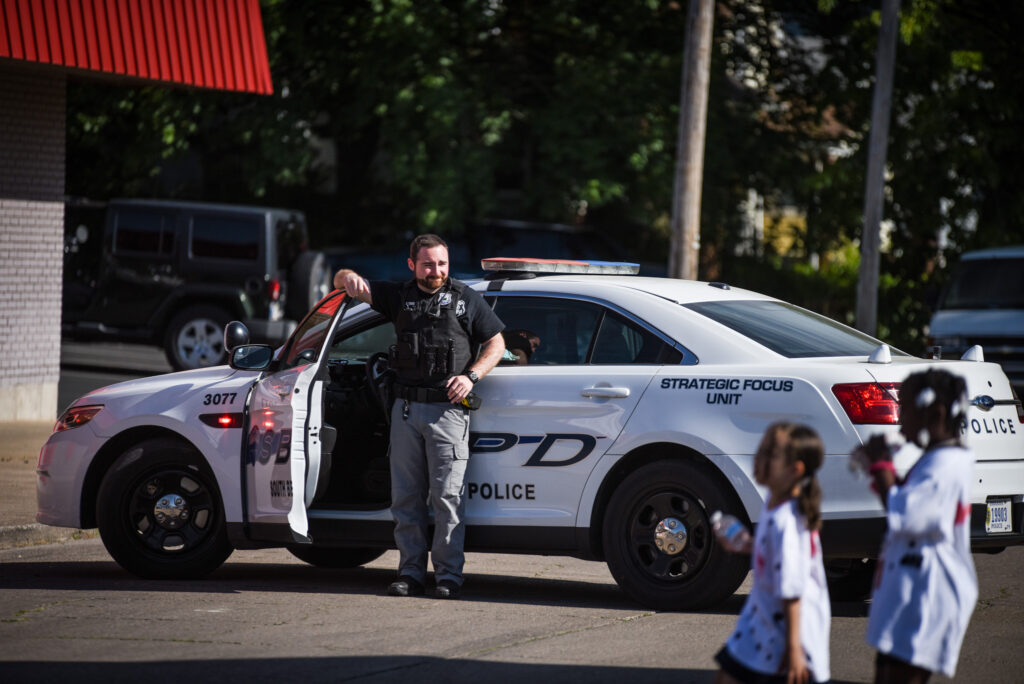
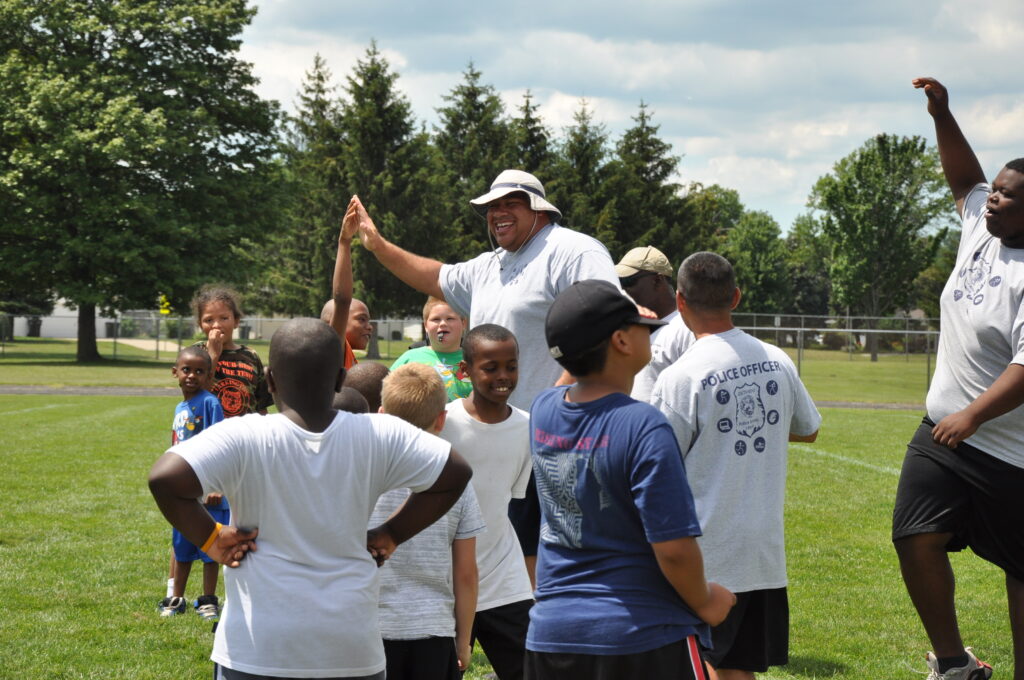
Police athletic league
Get “In The Ring”
The South Bend Police Athletic League (PAL) relaunched in 2006 with the founding of the South Bend Police Boxing Club. SBPD Captain Darryl Boykins and Pastor Verneil Lewis of Grace Community Baptist Church paired “in the ring” to bring this free program that matches cops and youth ages 10-18 in a sports mentoring environment. The objective of the Boxing Club is to encourage young people to value peaceful and positive ways to resolve differences and frustrations. It’s a way for youth to “put down” violence and death—and “put on” the boxing gloves for a better life.
In addition to boxing, PAL offers opportunities in tennis, football, and swimming. In summer of 2015, 413 area youth participated in these programs. From January through May 2016, 487 youth participated in the PAL Boxing Club.
For more information, including scheduling, visit our PAL Facebook page or contact Captain Dave Herron at (574) 235-7507 or [email protected]
other programs
Programs and Resources
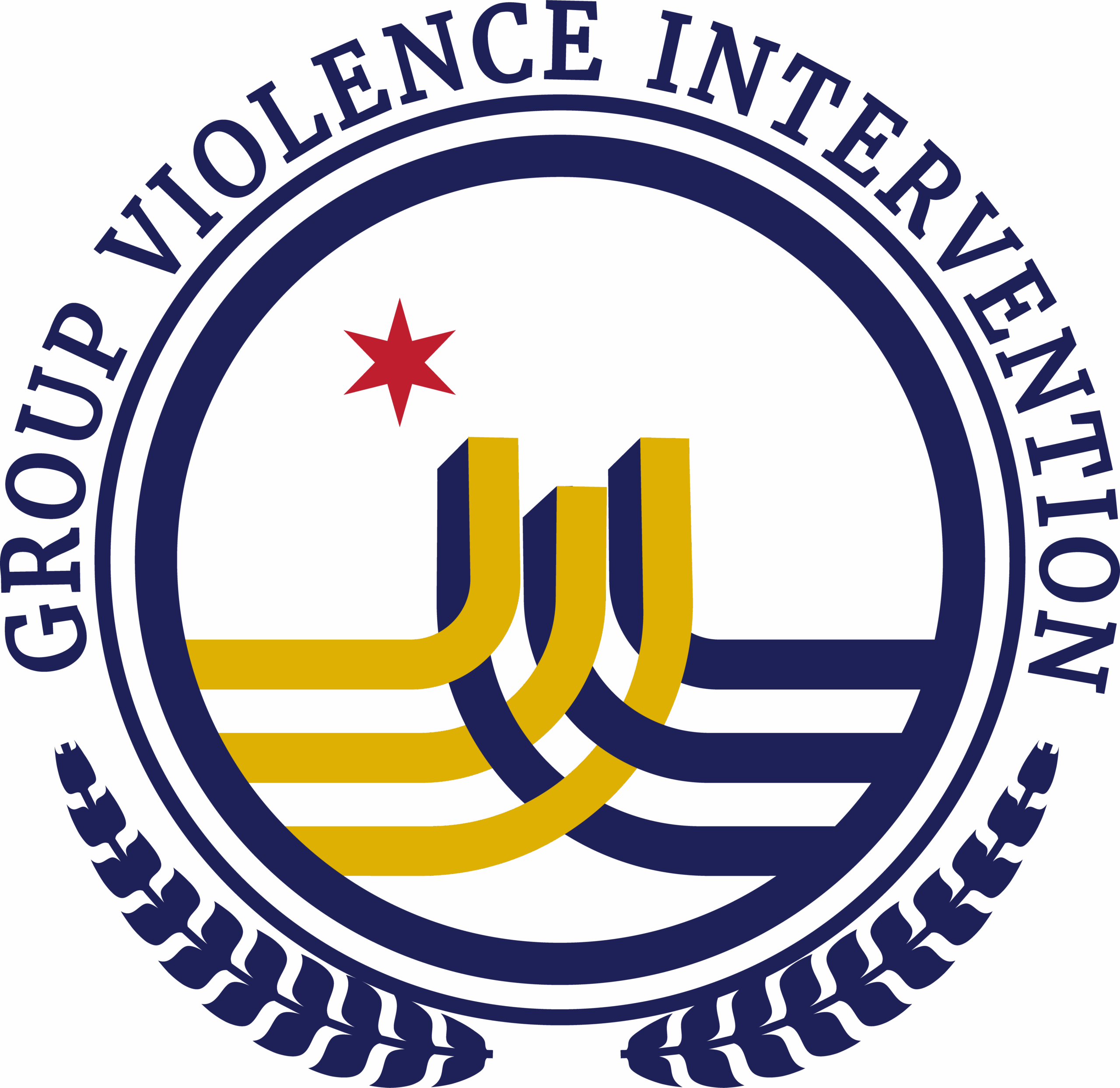
Group Violence Intervention (SBGVI)
The South Bend Group Violence Intervention program unites community leaders around a common goal: to stop gun violence and keep South Bend’s highest risk citizens alive and out of prison.
SBGVI is a partnership among 30 community leaders from law enforcement, government, education, civil service, health-care and faith-based agencies. Based on a proven model developed by David M. Kennedy, director of the National Network for Safe Communities at John Jay College of Criminal Justice, SBGVI advocates direct, sustained engagement with the street groups that cause the majority of South Bend’s gun violence. The strategy empowers community members to set clear moral standards against violence in their communities and reclaim a voice in the future of the community. It coordinates the efforts of local, state and federal law enforcement to focus crime prevention efforts on the groups most associated with gun violence. SBGVI also draws on the expertise of social service providers to offer group members a path away from violence. For more information, please visit the SBGVI website.
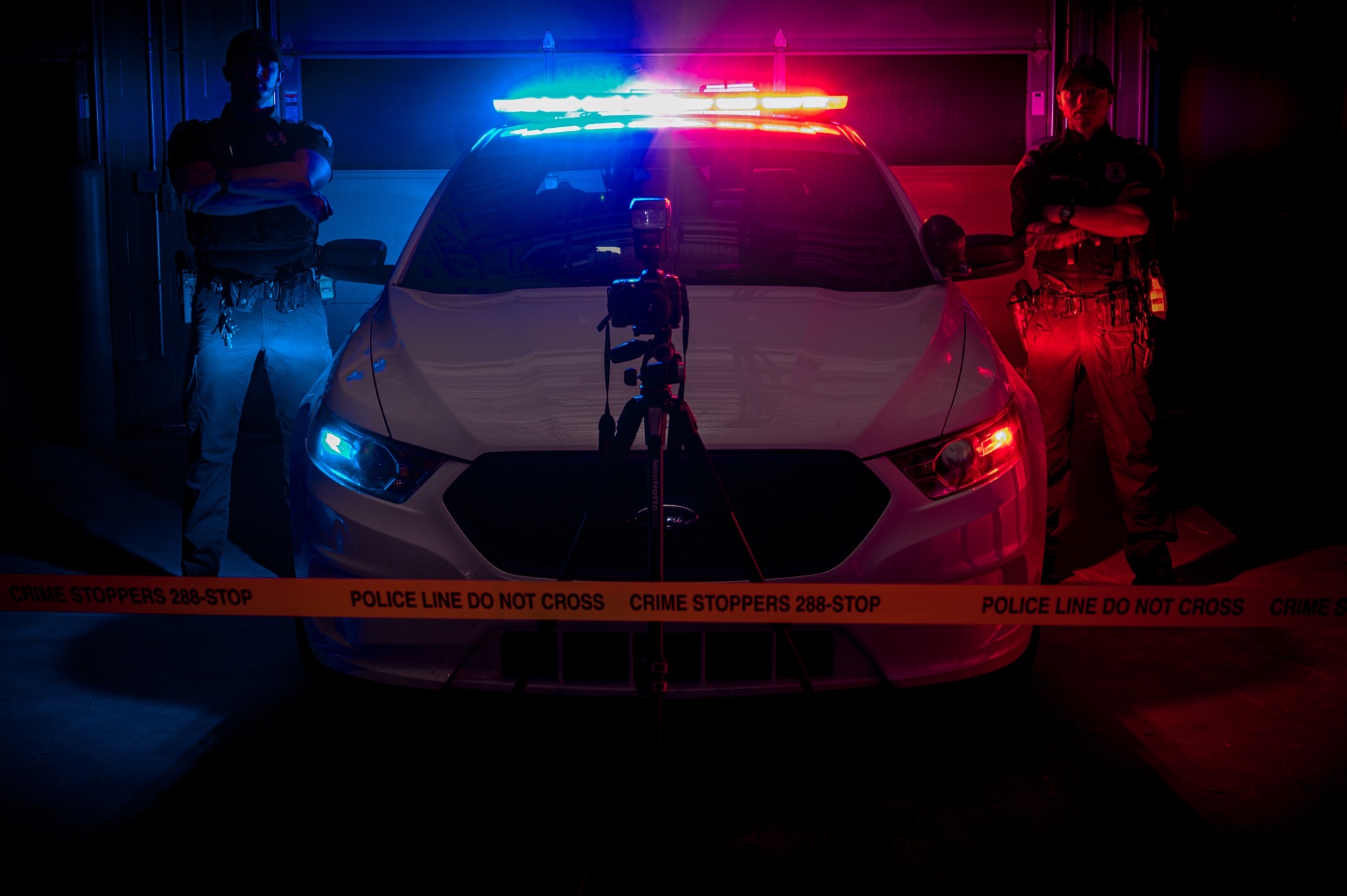
Chronic Problem Properties
The South Bend Police Department has increased its efforts to address and correct issues that arise as a result of chronic problem properties. The goal is to improve the quality of life for all residents of South Bend. Below is a brief history of the City and SBPD’s efforts, resources, and contact information.
About the ordinance
From April to June of 2013, there were 266 properties for which five or more calls were sent to the police. On June 10, 2013, the South Bend Common Council voted 8-1 to approve a chronic property ordinance to address this problem.
The Chronic Problem Property ordinance went into effect on October 15, 2013. It allows the City to fine property owners for each call above the limits established in the ordinance—5 calls within a 60-day period for a property with 50 or fewer units and 12 calls in a 90-day period for a property with 51 or more units. The fine is $250 for each call above the limit. Warning letters and remediation programs were put into place to assist owners in adapting to the new legislation and addressing issues at their properties.
Update
The Common Council has recently revisited an important aspect of chronic problem properties—property ownership. On Monday, May 9, 2016, the Common Council approved an ordinance to establish a landlord registry within South Bend. As part the registry, landlords have to provide the City contact information annually, so the City can have an updated database of rental property ownership.
For More Information
View the ordinance
Contact Code Enforcement at (574) 235-9486 or SBPD at (574) 235-9201.
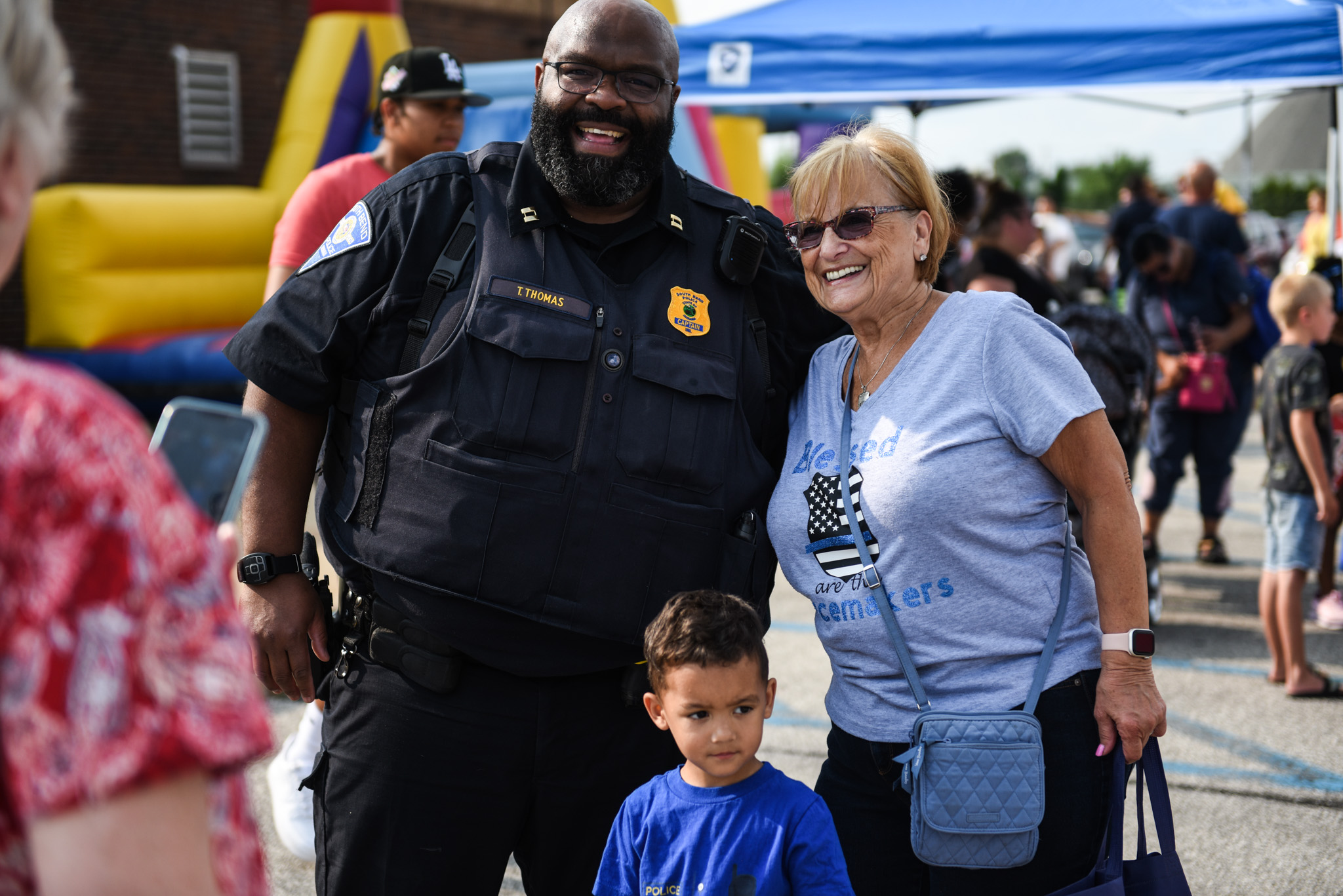
Victims’ Rights and Domestic Violence Resources
A victim of crime has the right to be treated with fairness, dignity, and respect throughout the criminal justice process.
The state of Indiana also provides for the right to:
- Be notified of the time and place of all court proceedings and to be present (except where the law forbids it)
- Be informed of his or her constitutional and statutory rights as a victim
- Be informed (upon request) if the offender is released from custody or has escaped
- Confer with the prosecutor’s office before the accused is charged, before the trial, and before any sentencing in the criminal case
- Have his or her safety taken into consideration in determining release from custody of the accused
- Be heard at any hearing involving sentencing or post conviction release from custody of a convicted offender
- Make a written or oral Victim Impact Statement to be included in the pre-sentence report
- Pursue restitution and other civil remedies against the person convicted of a crime against him or her
- Be given information (upon request) about the outcome of the criminal case involving the victim, and to be given information about the conviction, sentence or release of a person accused of committing a crime against him or her
- Obtain a translator or interpreter when necessary to advise the victim of his or her rights under the law
- Be informed of services available to victims, including:
- Violent Crimes Compensation Fund
- Victim assistance services
- Legal resources
- Mental health services
- Social services
- Health resources
- Rehabilitative services
- Crisis intervention services
- Childcare and transportation services to promote victims’ participation in court proceedings
For more information, please contact The Division of Victim/Witness Services of the St. Joseph County Prosecutor’s Office. This division seeks to be a leader in the community by assuring that all victims of crime receive compassionate advocacy.
What Happens After A Crime Is Reported?
Any criminal case that requires investigation in order to document the facts is directed to the investigative division.
- If certain basic facts are known (such as the suspect’s name or nickname, vehicle information, home or work location, associates, or a valuable piece of physical evidence), cases will be assigned to an investigator and pursued
- Without a certain degree of “lead” information, cases have almost no potential for resolution and will need to be closed
- Most cases are assigned to General Investigators, although certain cases are sent directly to the Prosecutor’s Office or assigned to specialty units
- Almost every police organization that employs full time investigators uses a similar system to analyze and assign cases
- Even for cases lacking solvability, the information in the case report can be helpful for establishing crime patterns
- Recognizable patterns can lead to increased patrols in specific neighborhoods, and later, if a suspect is developed, a formerly unassigned case can be resolved
Once your case is forwarded to the Prosecutor’s Office, an assigned prosecutor will review the information to determine whether it is sufficient to bring to the court system for prosecution. You may be contacted by the Prosecutor’s Office or The Division of Victim/Witness Services of the St. Joseph County Prosecutor’s Office. Please retain any information they provide you as it contains information to assist you in asserting your rights as a victim in your case.
If you obtain further information pertinent to this case, please call SBPD at (574) 235-9201. Often follow up information relating to your case can be taken via telephone.
You will typically not be recontacted by the Police Department unless an arrest is made, property is recovered, or additional information is required. It is your responsibility to notify the Police Department of any address or phone number changes.
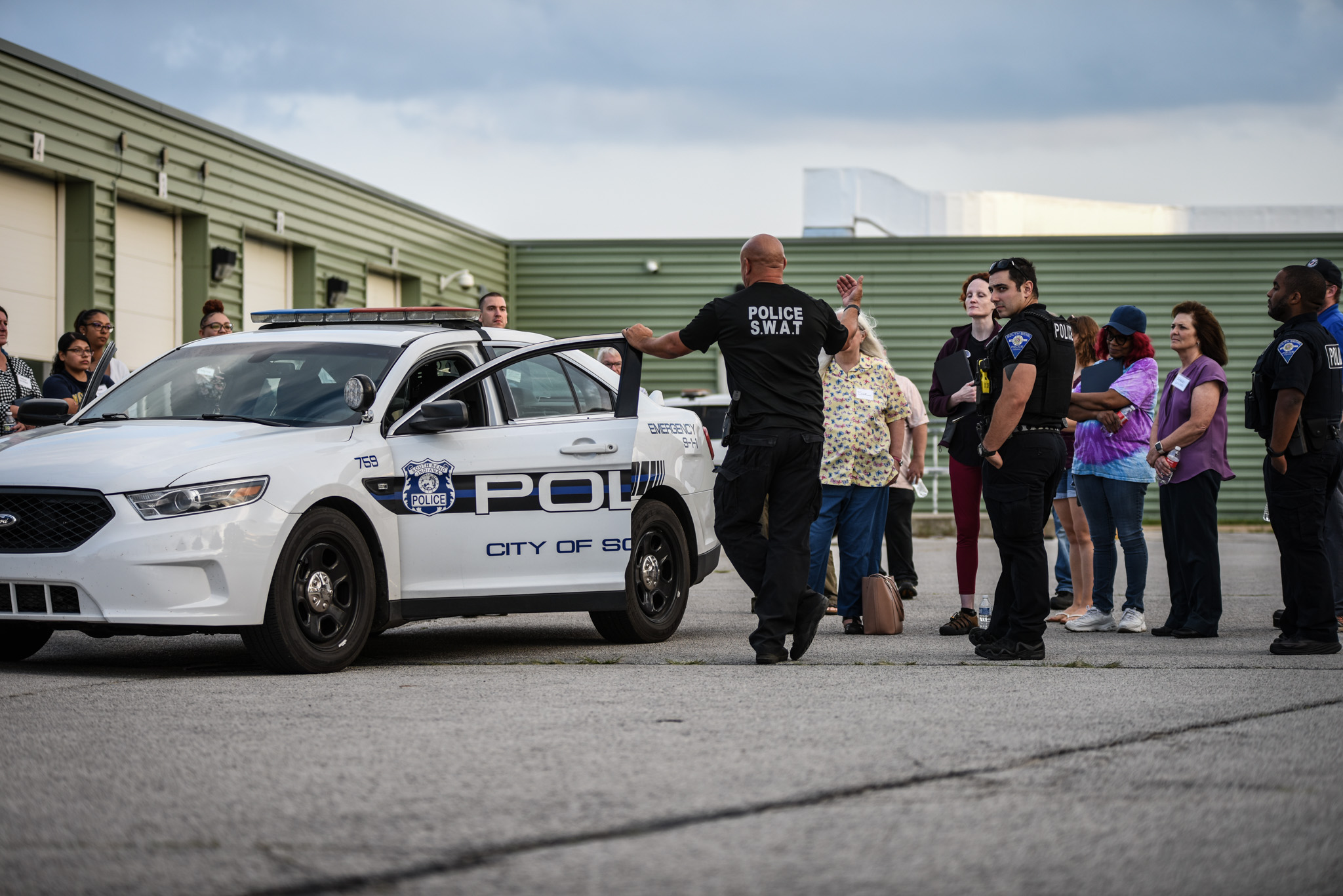
Citizens Police Academy
The Citizens Police Academy was established to promote an understanding of the South Bend Police Department and its policies and procedures. Our goal is to foster a spirit of cooperation between the city, its citizens and their police department.
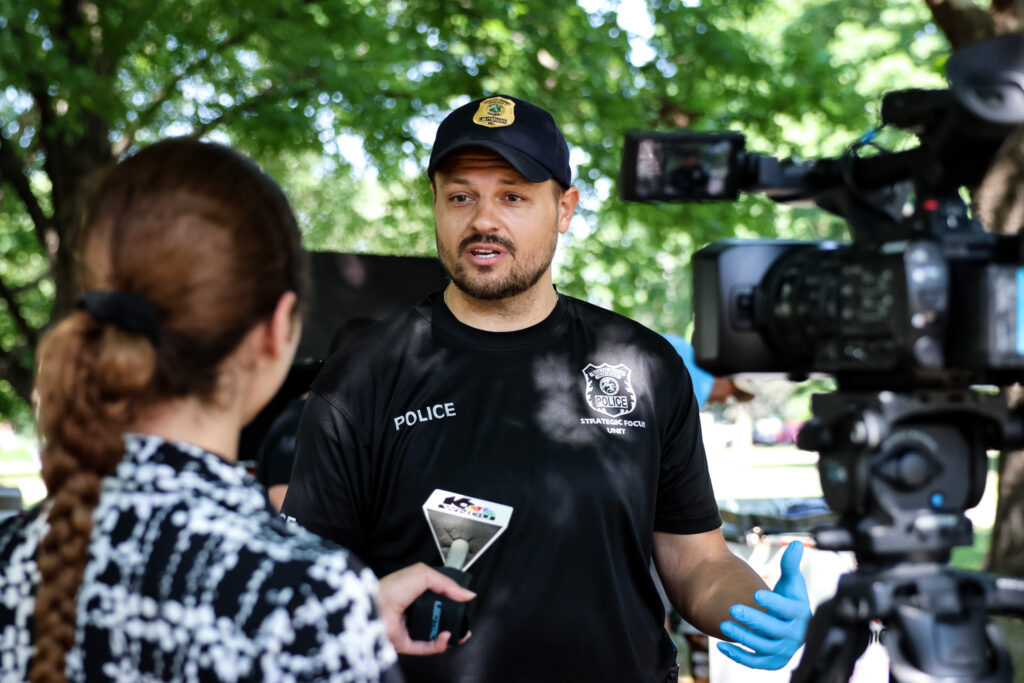
volunteer with us
Assist your Community
Volunteers can provide a level of support to local law enforcement agencies. While all agencies are designed and staffed to provide appropriate policing and law enforcement services to the community, there is always more to do. Volunteers can fill in critical gaps in program support, enabling law enforcement agencies to respond more effectively to enforcement and policing priorities. At the same time, volunteers can create valuable ties between members of the community which they represent and law enforcement.
Volunteer Unit Contact:
Sgt. Brad Rohrscheib
(574) 235-9817
[email protected]
What do volunteers do?
- Assist with natural and man-made disasters
- Act as the “Eyes & Ears” of the police
- Report quality of life issues
- Assist with traffic control for:
- Parades
- Walks
- Marathons
- Sporting events
- Other special events in the City
Volunteers may assist with a variety of Department functions, depending on need and the volunteer’s skills and interests.
What type of training does a volunteer receive?
- Radio communications
- Traffic control
- Weather spotter
- Radar gun
- CPR
How do I become a volunteer at SBPD?
- Be 18 yrs. old (21 if your duties require you to drive a Department vehicle)
- Have a valid drivers license or ID card
- Have a clear driving record
- Submit to and pass a background check
- Attend one training class per month
- Work 4 hours of patrol or special events per month (minimum participation requirement)
- Training classes are free
- Volunteer gear is issued upon graduation